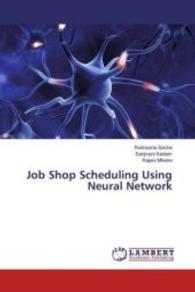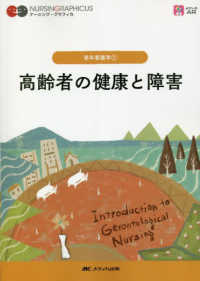Full Description
This is a unique resource for those wishing to address the affective domain as they research and solve problems in chemistry education. Contributions by world-leading experts cover both fundamental considerations and practical case studies. This work fills a gap in the literature of chemistry education, which so far has focussed mainly on the cognitive domain. The affective domain refers to feelings-based constructs such as attitudes, values, beliefs, opinions, emotions, interests, motivation, and a degree of acceptance or rejection. It can affect students' interest in science topics and their motivation to persevere in learning science concepts.
Contents
Meeting educational objectives in the affective and cognitive domains: Personal and social constructivist perspectives on enjoyment, motivation and learning chemistry.- Evaluating the Affective Dimension in Chemistry Education.- Getting involved: Context- based learning in chemistry education.- Gender Perspective on Affective Dimensions of Chemistry Learning.- Intuitions about Science, Technology and Nature - A Fruitful Approach to Understand Judgments about Socio-Scientific Issues.- Implementing Inquiry-based Science Education to Foster Emotional Engagement of Special Needs Students.- Affect and meeting the needs of the gifted chemistry learner: providing intellectual challenge to engage students in enjoyable learning.- It's the situation that matters - Affective involvement in context-oriented learning tasks.- Gathering psychometric evidence for ASCIV2 to support cross-cultural attitudinal studies for college chemistry programs .- Secondary School Students' Chemistry Self-Efficacy: Its Importance, Measurement, and Sources.- Second Year College Students' Scientific Attitudes and Creative Thinking Ability: Influence of a Problem-Based Learning (PBL) Chemistry Laboratory Course.- Neuroscience Engagement: The Influences of Chemistry Education on Affective Dimensions.- Evaluating Drawings to Explore Chemistry Teachers` Pedagogical Attitudes.- Chemistry Teachers` Attitudes and Needs when Dealing with Linguistic Heterogeneity in the Classroom.- Majors' Gender-Based Affective States toward Learning Physical Chemistry.








